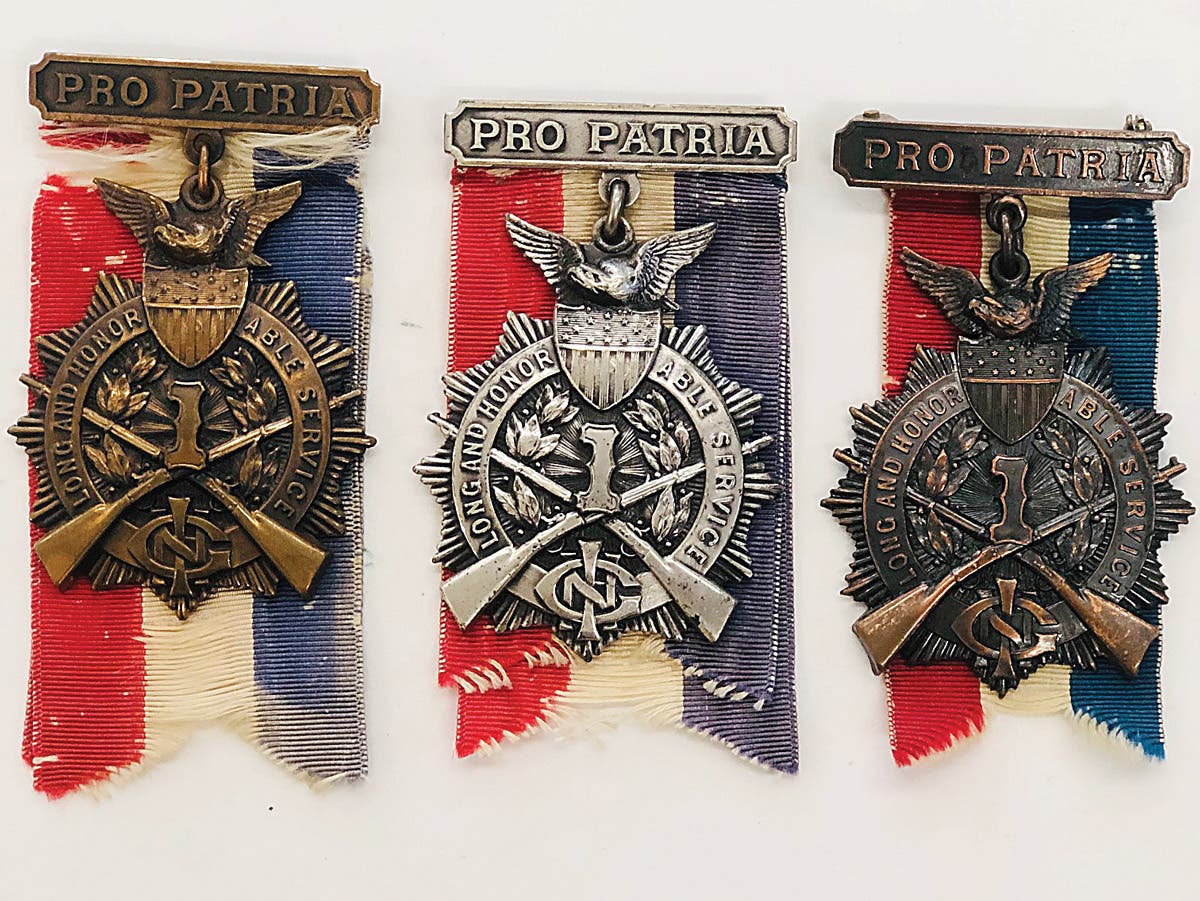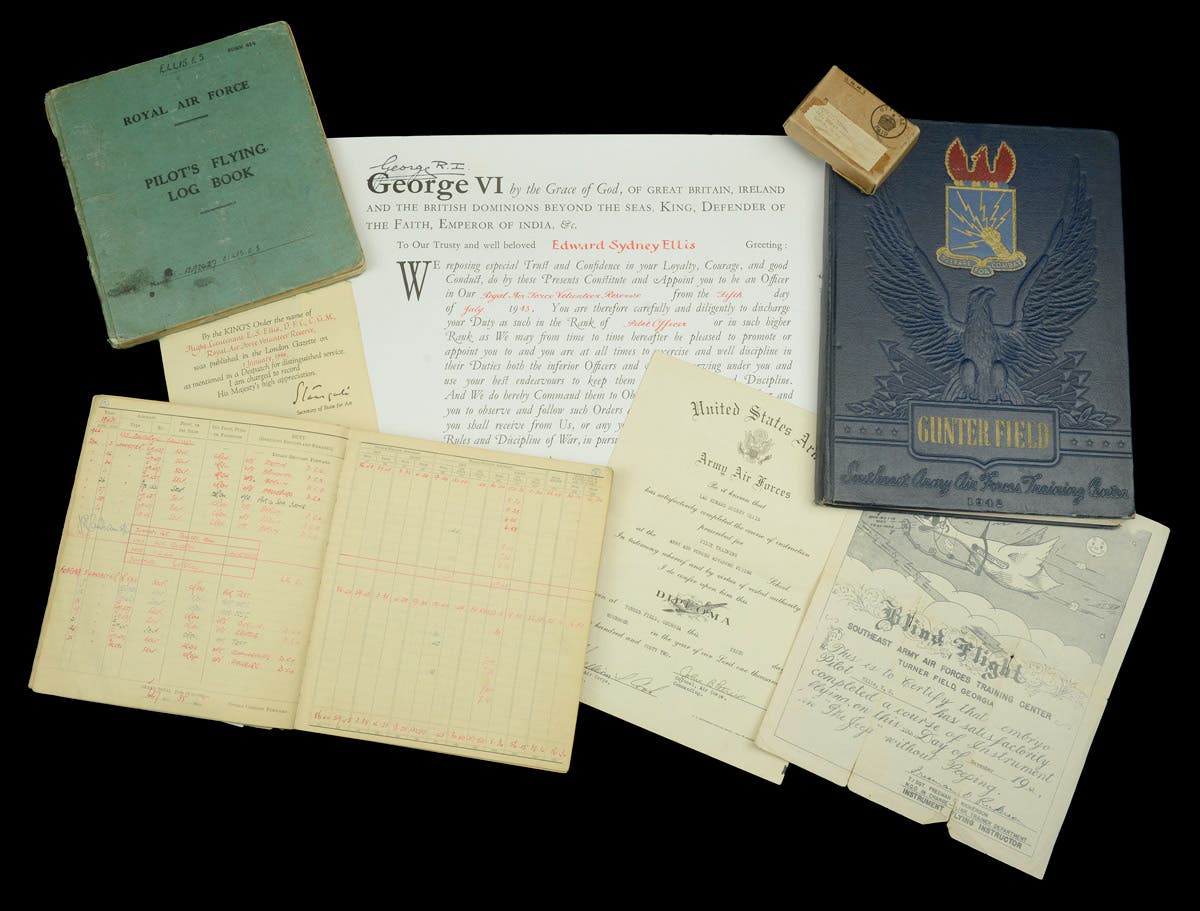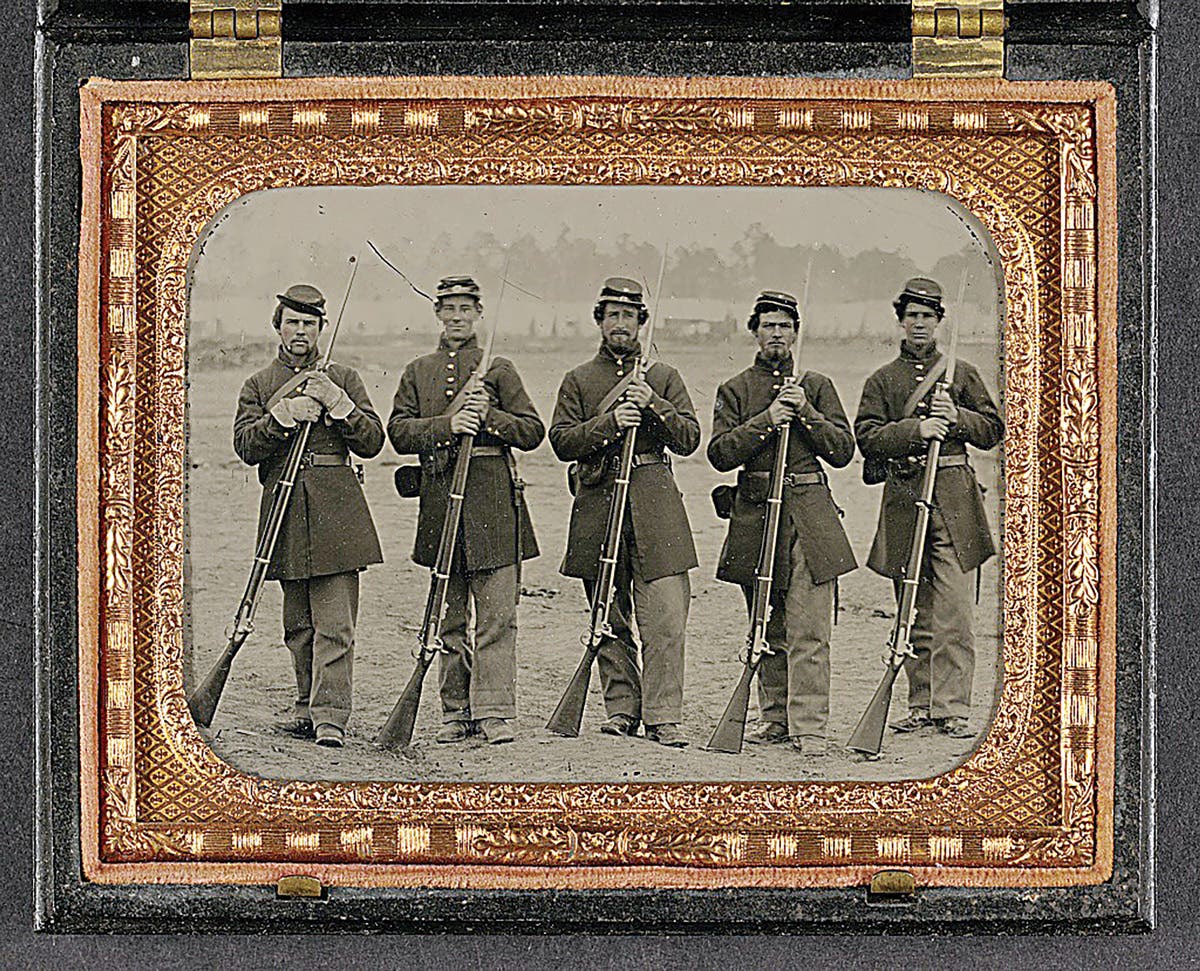8 things in your collection your kids don’t want…and a couple they do
Too many collectors believe “their family will want their collection” after they die. The reality is so far from that assumption. Read what your family does and doesn’t want, and perhaps, you can provide a legacy to your family — and to the veterans — your collection has come to represent in your life.
While many of you are young and in the early stages of your collecting career, I am going to share some tips with all of you to consider about the eventual disposition of your collection. We all say we are “caretakers of history” and yet, every week I receive inquiries by those left behind wondering “What to do with Dad’s collection.” “Part of responsible caretaking” is providing a plan for when we are no longer able (or around) to enjoy and take care of the historic relics and vehicles we treasure.
It may be true that for a small number of collectors are so fortunate as to have a child or children who really are into collecting. However, the truth of the matter is, it’s YOUR hobby, not theirs. They may act interested, but face it, if they loved it like you did, they would be bugging you for it BEFORE you die.
If that isn’t the case, chances are they aren’t going to be that interested after you are gone.
So, based on years of answering the question, “What should I do with Dad’s collection,” here are the top eight items I have learned your kids DO NOT WANT:
1. Your books.
We all rely on them. I even surround myself with them. They are treasured resources.
But, to someone not involved in the hobby, those books are little more than pulp. Books are really, really hard to get rid of. But I understand, I like to believe my library constitutes my “Alamo.” When I can’t collect anymore, I will still have my books to keep my interests satisfied. I think my books will be the last to go.
If you have some rare copies that you KNOW someone would enjoy when you are done with them, write it on a post-it and stick it on the cover.
Most charitable drop-off sites don’t want them anymore. There are a few places that buy collections — dimes on the dollars — so that might be an option.
At this point, start a list titled, "“WHAT TO DO WITH MY STUFF WHEN I AM GONE.” Under "books," list a few places that might come and carry your library away. This will make it much easier for those you behind.
2. Your guns.
Ouch, really? Your kids don’t want your guns? Well, for many, it’s true. It’s a different world out there.
While we love our firearms, a lot of folks don’t have the same feelings about them. In fact, they regard them as liabilities rather than as assets.
From my own experience, here are a couple examples of how to deal with firearms:
First, when my Dad was still able, he tagged a gun for each of his kids so that when he was gone, we would know which ones he felt we should have. And the guns without tags? He was comfortable with us selling them. That’s one method.
Second: If your kids would enjoy a weapon from your collection, consider giving it to them before you check out. That way, you can share what you know and be comforted in the idea that the weapon you love is going to be treasured.
If your kids aren’t really into guns now, they probably won’t be after you are done with them. So, make it EASY for them to convert them into CASH (that’s one of the few things they DO want).
To do that, have all your paperwork for your firearms in one place. Tag and identify the weapons. In fact, go as far as to value each of the guns. Providing guidance on firearms values is pretty straight-forward.
Again, on that list of “WHAT TO DO WITH MY STUFF…,” write down the names and numbers of two or three gun dealers you trust who your family can contact. This will save them a lot of worry.
3. Your military vehicles
Seriously. You might ask, “Who wouldn’t love a free Jeep or deuce-and-a-half?” I am here to tell you: Based on years of dealing with “the families left behind,” they really don’t want them.
The pattern goes like something like this: The year AFTER a military vehicle collector checks out, his/her family tries to “Keep the memory alive” by participating in the local parades or events where the collector once share their vehicles. The second year, they realize the vehicles don’t start, the tires are flat, or there are other reasons the inheritors don’t participate in those same events. By the third year after the demise of the collector, I get the call, “What do I do with Dad’s Jeep /vehicles?”
Again, don’t confuse enjoying a ride in Dad’s Jeep or tank with the desire to own it. If they have been pulling wrenches with you and really have demonstrated an interest, well, that’s a different story.
But, if their interest is only minimal, do them a BIG favor: Gather all of the titles and put them in one place where they will be able to find them.
Go a step further and have your vehicles appraised. While anyone with 10 fingers or a voice can list your vehicles for sale on the internet, they might not have an idea of value.
Do that homework for them now…they will appreciate it when you aren’t there to ask.
4. Your uniform collection (patch collection, helmet collection, DUI collection, medal collection left-hand military glove collection, etc.)
That’s right, those things are all just “old stuff” to someone who is not in the hobby.
Chances are, despite you declaring that items in your collection “are valuable” and “don’t give these away,” after a year of trying to figure out what to do with closets full of old uniforms, racks of headgear, or piles of medals and insignia), you family will cart them off to Goodwill or give to the local auctioneer to convert all of your collection into something your kids DO want: The cash.
Those of us that collect probably have one or two very special pieces. If that is the case, mark them in a way that your family knows what to do, whether it is donating to a museum, selling to your best buddy, or passing it on in some other way.
The key is: Plan now. Don’t leave them with a room full of military collectibles because they will find the easiest path to disposal and cash conversion.
5. Historic documents and photographs.
We all know that these are the sources to more knowledge. I have thousands of historic photos and have bragged, “I never met an old photo I didn’t like.”
When my daughter was little, I convinced her she liked 1860s carte de visites. It gave her something to look for when I dragged her to antique stores. Well guess what? Now that she is in her 30s she couldn’t care LESS about historic photos…let alone the daguerreotypes, panoramas, or real photo postcards in my office.
The problem with ephemera is that it is hard to quickly convert it into cash. While I will be able to find buyers for my various military photos, selling images of civilians or landscapes are much harder.
Compound the difficulty if you are trying to sell documents. While diaries, letters, and official documents are treasure troves for research, they are time consuming to sell.
Keep this in mind as you look at your collection. Would a museum or library benefit from it?
Also remember, “Just because it is interesting, doesn’t mean it is important.” Others may not be captivated by the items the way you have.
6. Your “museum.”
A few among us have the dream of “starting a museum” based on our collecting. A few of you may have even done so.
If you fall into either of those two categories, I am about to share a hard truth… one that comes from my training as a museum professional and more than 30 years of dealing after that: Your kids DON’T WANT your museum.
You may have convinced yourself that your museum is crucial to your local community, and therefore, to your family, but I am here to tell you, passing your museum on to family doesn’t usually go well.
While the efforts to carry on are noble, eventually the board of directors or the family running the museum must face the fact that it costs a LOT of money to do it. You may have had the passion and were willing to eat a lot of macaroni to keep the doors open. After you are gone, however, your family may not be so dedicated. Even if left with a monetary endowment, these resources usually are not enough to keep the door open, long-term.
Museums are complicated businesses. If you have one, strongly consider negotiating with your community to see if it is willing to take over operation.
Otherwise, talk to your favorite auctioneer or dealer to come in after you eat your last serving of macaroni. Collectors love to bid heavily and buy at a “museum going out of business” auction. Your kids will be happy with the pile of cash when the sale is done and the building is empty.
7. Your web site.
I bet you didn’t think of this one!
Whether your personal web site is a selling platform or simply a source of in-depth information about your hobby, it requires maintenance. This comes in the form of paying hosting fees, insuring security, updating the site, responding to emails, and all the other fun things that come with owning a site.
Your kids don’t want that hassle. And your site is not your personal memorial. That’s what cemeteries are for.
So, in the long list of “WHAT TO DO WITH MY STUFF…,” jot down the addresses and passwords for any of your online presences so that your kids can go shut ‘em down. I recorded it all for my heirs because I know one of you will think it is funny to post some snarky “JAG” comment long after I am gone. Not gonna happen!
8. Your personal justification for collecting.
What does this mean?
Well, let’s be honest. We have all been there. We bring home a treasure and show it to family, partners, parents, or whomever we want to impress. To bolster our self-esteem, we declare, “It’s worth XX!” (Understandably, far more than we actually paid for it — or what would be the point?)
Most of us have done this. Heck, I’ve done it. I used to show stuff to my Dad but feel compelled to enhance it by saying, "It's worth..." He would reply, “Then go out and sell it!” I would retort, “But I like it.”
This sort of over-valuing your collection now will make it really hard for your heirs to dispose of it after you are gone. It will be very confusing to them when they try to sell that helmet you declared was worth $10,000 and dealers are only offering them $4,000 or $5,000.
They already love you. You don’t have to impress them with your business prowess. When you are gone, they will appreciate that you were honest with them about values.
So What Do they Want?
Again, unless you are the rare individual who has a child or others who are genuinely interested and involved in the militaria hobby, the grim truth is, your family probably doesn’t want your stuff. What they want is YOU.
1. They want the personal connection to YOU.
So, if you have items or vehicles that genuinely connected you to someone (for example, “you both restored the jeep,” “we used to enjoy shooting that rifle together,” or, “Remember how happy we both were when we discovered that relic together?”), make sure you discuss it NOW with the other person. Maybe it would mean a lot to them to have that Jeep, that rifle, or that special relic to remind them of the joy you shared together.
But don’t assume a gift will be received in the spirit you gave it. For example, I once gave a rifle to a child that I thought he would treasure. I learned he later sold it for drug money. I guess it didn’t mean as much to him as I imagined!
If you had served in the military, again, they will want the personal connection to you — as long as it is manageable. They really don’t want your footlocker full of every piece of uniform or gear you ever were issued. But they do want your dog tags, your medals, photos of you in service, and yes, even the flag that will eventually drape your coffin.
Make it clear who gets what — and why. Save them the arguments or hurt feelings after you are gone. There will be plenty of those without you adding to them.
And finally, it should be clear by now:
2. They want the money.
No offense to you or your hobby, but money is very easy to organize and keep track of. Riker mounts full of 1st Cavalry patches, gun safes full of WWII rifles, or a barn full of Jeeps, just aren’t the same as a fist full of money.
And after all, you want to provide for them what is best for them…not make them carry the burden of your hobby throughout the rest of their lives.
Preserve the Memories,
John Adams-Graf
Editor, Military Trader & Military Vehicles Magazine
You may also enjoy
*As an Amazon Associate, Military Trader / Military Vehicles earns from qualifying purchases.
John Adams-Graf ("JAG" to most) is the editor of Military Trader and Military Vehicles Magazine. He has been a military collector for his entire life. The son of a WWII veteran, his writings carry many lessons from the Greatest Generation. JAG has authored several books, including multiple editions of Warman's WWII Collectibles, Civil War Collectibles, and the Standard Catalog of Civil War Firearms. He is a passionate shooter, wood-splitter, kayaker, and WWI AEF Tank Corps collector.








